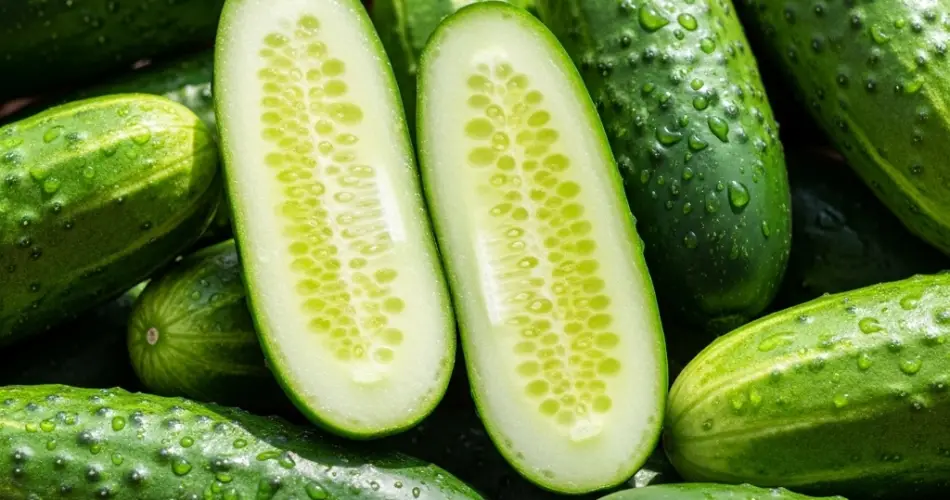Cucumbers are a popular and refreshing addition to any home garden. With their rapid growth and crisp texture, they’re a summer favorite for salads, pickles, and snacks. While they are relatively easy to grow, cucumbers do require proper care to ensure a healthy, productive harvest. Fortunately, you don’t need to rely on synthetic fertilizers or expensive gardening products. Your kitchen is full of natural, nutrient-rich scraps that can significantly improve your cucumber plant’s health.
In this guide, we’ll explore how to care for cucumbers using common kitchen scraps—an eco-friendly, budget-conscious approach that delivers impressive results.
Why Cucumbers Thrive with Organic Matter
Cucumbers are heavy feeders. They require a steady supply of nutrients—especially nitrogen, potassium, and phosphorus—to produce abundant fruit. Rather than buying store-bought fertilizers, organic kitchen scraps can provide a slow, steady release of nutrients while also improving soil texture and promoting microbial activity.
When used correctly, kitchen scraps act like compost, gradually breaking down and enriching the soil over time. This natural method supports a sustainable gardening cycle, reduces food waste, and helps your plants grow stronger and more resilient.
The Best Kitchen Scraps for Cucumbers
Not all kitchen waste is beneficial for plants. Some scraps work better than others when it comes to feeding cucumbers. Here are the top kitchen scraps to focus on:
1. Banana Peels
Rich in potassium and phosphorus, banana peels support flowering and fruiting. Cut them into small pieces and bury them near the roots of your cucumber plants. As they decompose, they release essential minerals into the soil.
2. Eggshells
Crushed eggshells add calcium to the soil, which can prevent issues like blossom end rot. While cucumbers are less prone to this than tomatoes, calcium still plays a vital role in overall plant strength and root development. Rinse and crush the shells before applying them around your plants.
3. Coffee Grounds
Used coffee grounds provide a gentle nitrogen boost and help improve soil structure. They also attract earthworms and beneficial microbes. Mix them into the soil or compost pile, but don’t overdo it—too many can make the soil too acidic.
4. Vegetable Peels
Peels from carrots, potatoes, and other vegetables are full of micronutrients. Chop them finely and either compost them first or bury them around the cucumber base to let them break down slowly.
5. Tea Leaves
Loose tea or used tea bags (without synthetic materials) contain nitrogen and improve soil texture. They also help retain moisture. Dry them out and sprinkle a thin layer around the plant base.
6. Onion Skins
While raw onions can harm some plants, their dry skins are safe and beneficial. They contain sulfur and other trace elements that help strengthen plant immunity. Add them to your compost or bury them shallowly in the soil.
How to Apply Kitchen Scraps Effectively
To avoid pests and ensure nutrients are properly absorbed, follow these tips when using kitchen scraps in your cucumber care routine:
-
Compost First (When Possible): Composting allows organic matter to partially decompose, making it easier for plants to absorb nutrients. It also reduces the risk of attracting rodents or insects.
-
Dig and Bury: If you’re applying scraps directly, dig small holes about 10–15 cm from the cucumber stem and bury the scraps. Cover with soil to mask any smell and prevent pest problems.
-
Avoid Overfeeding: Too many scraps can cause nutrient imbalance or mold. Use moderation, adding small amounts weekly or as part of your compost mix.
-
Keep It Balanced: Combine “green” materials (fresh peels, coffee grounds) with “brown” materials (dry leaves, paper towels) in compost to maintain a healthy balance of carbon and nitrogen.
Other Helpful Tips for Cucumber Care
In addition to feeding cucumbers with kitchen scraps, here are a few extra practices that can greatly improve your success:
-
Mulching: Use straw, shredded newspaper, or grass clippings to mulch around the base of your cucumbers. This retains moisture, suppresses weeds, and keeps roots cool.
-
Consistent Watering: Cucumbers need regular watering to prevent bitter fruits. Keep soil consistently moist, especially during flowering and fruiting stages.
-
Support Vines: Use a trellis or vertical support to keep cucumbers off the ground. This improves airflow, reduces disease risk, and makes harvesting easier.
-
Watch for Pests: Regularly inspect leaves for signs of aphids, cucumber beetles, or mildew. Neem oil or soapy water sprays can help manage these naturally.
Final Thoughts
Caring for cucumbers doesn’t have to be complicated or costly. With a little attention and some smart use of kitchen scraps, you can grow healthy, productive cucumber plants that reward you with crisp, delicious harvests all summer long. By turning food waste into plant food, you’re not just saving money—you’re contributing to a more sustainable and self-sufficient garden.



